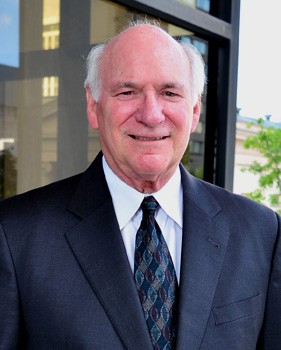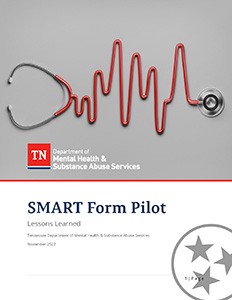Addressing Emergency Department Boarding
In partnership with stakeholders across the state, the Tennessee Department of Mental Health and Substance Abuse Services is committed to delivering the right treatment at the right time in the right place for Tennesseans living with mental health or substance use issues. That's why we've been working for years to address the situation known as Emergency Department Boarding where a patient presents at an emergency department with a psychiatric condition and remains there until admission to a psychiatric hospital.
Starting in 2017, the department convened a workgroup in partnership with the Tennessee Hospital Association and the Tennessee College of Emergency Physicians to analyze the psychiatric service delivery system and assess for opportunities for improvement. The workgroup’s product was a final report in 2017 containing protocols for initiating psychiatric treatment in emergency departments. In 2019, the workgroup updated its report noting the progress made in decreasing wait times and reducing the number of patients referred into the public system.
Dr. Sandy Herman joined the department in 2019 with a mission to reduce the time that psychiatric patients spend in emergency departments before transfer to one of the state’s four Regional Mental Health Institutes. Dr. Herman is a Board Certified Physician in Emergency Medicine with more than 30 years of experience in the Emergency Room, and former President of the Tennessee College of Emergency Physicians. He also serves as Medical Director at Middle Tennessee Mental Health Institute.
To learn more about the work to reduce emergency department boarding in Tennessee, please watch the short video below and find Dr. Herman's contact info at the bottom of the page.

Watch a brief presentation from Dr. Herman:
SMART Medical Clearance Form
In 2022, TDMHSAS and Middle Tennessee Mental Health Institute partnered with two Nashville hospitals (Saint Thomas Midtown and Tristar Summit) and Mental Health Cooperative’s crisis team on implementing a SMART Medical Clearance Form pilot. Through the pilot, the emergency departments agreed to use the SMART Form as their medical clearance tool when referring individuals with psychiatric needs to MTMHI. As a result, none of the referrals with a completed SMART Form were sent back for medical clearance. Read more about this pilot project in our report, and download the SMART Medical Clearance Form at the following links.
Helpful Links
Emergency Department Protocols for Initiating Psychiatric Treatment
Decision Chart for Non-Admission
Form MH-5542 Certificate of Need for Emergency Admission
Psychiatric Crisis Service Delivery System FAQ
For More Information
Sanford Herman, MD, MS, FACEP
Community Behavioral Health Medical Director
615-767-0189
Sandy.Herman@tn.gov
